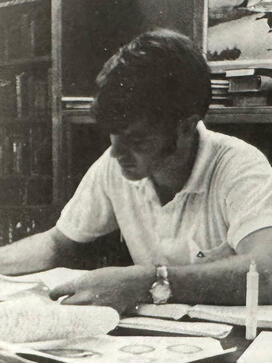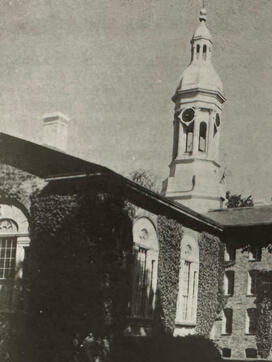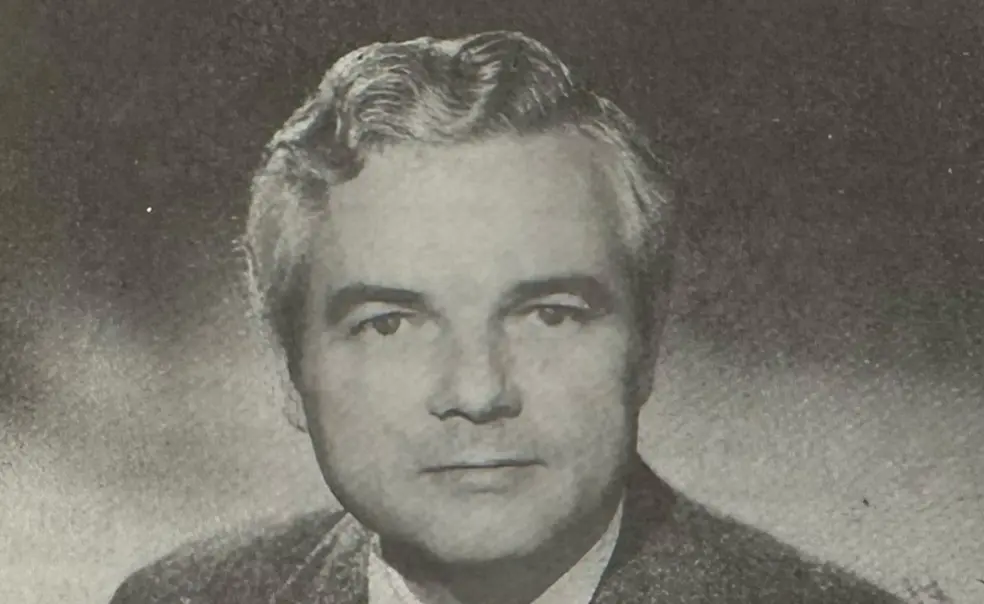On The Honor System
“We’ve learned that the kind of people we are is as important as what we know, and that all things most worth doing require the best of both our intellect and our principles.”
The following is excerpted from an address on the Honor System to the Class of 1981 by former Trustee Robert G. Abernethy ’49.
It is a great privilege to be asked to give this talk; it is also a great challenge. I am quite sure this is the most intelligent audience I have ever addressed. Moreover, we all seem to learn through the years to be reluctant to talk in public about the principles we think most important. But let me presume to do so — not only because the Honor Code implies such concerns, but also because I believe very strongly in the things I want to say.
I think all of us in these times are on our own in many ways, beginning with our underlying beliefs. This is a time in history with a few common ideas about meaning and purpose, and how to live. All of us struggle to arrange for ourselves a tolerable accommodation between competing claims. And the paradox is, of course, that the more ideas from which there are to choose the less guidance we seem to have.
Making a Constructive Difference in the World

But we have learned from recent history and from almost any day’s news that power needs to be balanced with the ability to use it to good ends; that making a constructive difference in the world requires both knowledge and wisdom; that the kind of people we are is as important as what we know; and that all things most worth doing require the best of both our intellect and our principles.
It is against this background and those lessons, then, that you come to Princeton. And let me suggest that your broad objective should be very clear: it is to grow as much as you can in both your intellect and your self.
As you pursue your studies you will develop, I am sure, great respect for the achievements and ideas of science. But just because scientists have had enormous success understanding the material world does not mean that things material are the only ones worth considering. Nor is there any guarantee that science alone will help answer the most basic questions of meaning and purpose, or guide us in the use of the power science and technology confer.
Thus I urge you to take very seriously all those fields known as the humanities. Far from being luxuries or distractions, they can provide very practical clues to how lives can be lived and power, used. I submit, then, that this is your obligation: to explore all those fields devoted to ideas that cannot be measured but that tell so much that is important about what it is like to be human.
On Becoming the Kind of Person You Want to Be
This brings us to that sometimes elusive twin of intellectual growth — the other major assignment for which you have become responsible — your own growth as persons. Scholars know a lot about the pursuit of truth and the discipline of independent thought. But how do they — how do you — develop such qualities as conscience and courage?
One way to become the kind of person you want to be is to find others who have grown that same way and learn from them. Experts on this sort of thing agree that values are transmitted by persona example and contact.
But I would also urge you to reach out to those students who are different from yourself. There is a great deal you can learn from each other — and teach each other — if you can just manage to take the chance and make the effort.
Finally on this matter of personal growth, and at the risk of seeming frivolous, I wish you the ability to play. It is no bad thing to take or make time to wonder, to watch or listen to something beautiful, and to be a friend.
Intellectual growth. Personal growth. With luck, the result of your venturing here will be both knowledge and a strong sense of how to use it, to what ends, and why. Now let me relate all of this to the Honor System.
A Welcome Absolute in a World of Many Choices

In a world of many choices and many points of view, the Honor Code at this University is a welcome absolute, fundamental to your growth both intellectually and personally.
When you sign The Pledge on an examination, you say to yourself and everyone else that you are worthy of trust; and the experience of doing that, year after year, produces an enduring, satisfying self-respect. It feels good to have tested yourself and passed.
This experience of being trusted and trustworthy also unites you with all others who sign and have signed the same Pledge. For more than 80 years, Princeton undergraduates have agreed on the importance of this symbol of integrity, and that shared commitment nourishes the spirit of community that is such an important part of this place.
In short, the Honor Code works at Princeton, and that fact is a source of great pride to all of us who have been undergraduates before you, as I think it will become to you. The sense of community the Honor System helps foster — among students and everyone here — is, in turn, an encouragement to learning.
So the Honor Code serves both your major purposes: it helps you grow as persons, and it helps create a strong sense of community, which in turn helps promote both personal and intellectual growth.
Taking A Stand in an Important Cause
And it does one thing more, too. Important as intellectual power is; important as is a sense of how to use that power; there is still a third essential, and that is the ability to act, the courage of your convictions. Signing the ledge seems to me to foster that, for the Honor Code requires not just intellectual understanding and moral approval but a decisive, existential act of integrity, a stand taken in an important cause. And the more you take such stands for honesty and trust here the more you will be able to do the same in years to come, anywhere.
What you do here each day helps determine the kind of person you will become. If you want the years ahead to be an improvement on those past — if you want more trustworthiness and honesty in government and business and the professions — make sure you defend and live by those same values on this campus. Make sure, especially, that the Honor Code endures.
It was in this hall in 1896 that Woodrow Wilson spoke of Princeton in the Nation’s Service. That ideal remains central to this University. It is in the service of great purposes that we create for ourselves the meaning of our lives, and doing that requires the combinations of which I have been speaking. Independence of mind, on the one hand. Conscience and courage, on the other. Knowledge that softens into wisdom. Principles to match our power. Sensitivity to suffering and injustice. And the skill and will to do something about them.
This was originally published in the May 8, 1978 issue of PAW.












No responses yet